Page Turners: Summer Book Suggestions from Swarthmore Faculty, Staff, and Students
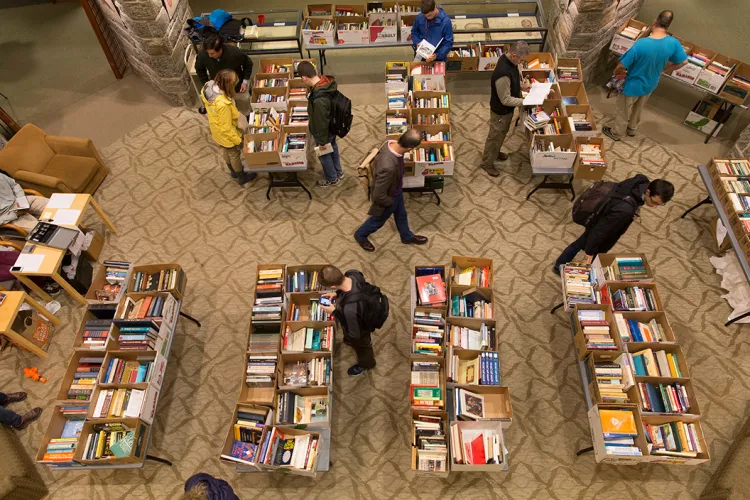
As the College wraps up one of its most challenging academic years on record, Swarthmore’s Libraries are encouraging the community to take a well-earned break — by getting lost in a book.
For the 13th year, the Libraries have compiled a list of summer reading recommendations from students, faculty, and staff members. Dedicated in memory of science librarian and “ultimate book lover” Meg Spencer, who died in 2015, the list includes personal accounts on Swarthmoreans’ favorite titles, spanning a range of authors, eras, and genres.
“It’s an opportunity to remind folks that reading can be fun,” says Scholarly Communications Librarian Maria Aghazarian, who curated the list. “Part of the liberal arts experience is about being well-rounded, and you can’t be well-rounded if you’re working really hard and doing serious academics all the time. You need to remember to take a break.”
Aghazarian plans to take hers this summer by reading Tales From the Ant World, a scientific memoir from two-time Pulitzer Prize winner Edward O. Wilson. As her personal recommendation, she suggests Spellbound: A Graphic Memoir, whose author, Bishakh Som, visited Swarthmore virtually this year thanks to sponsorship through the Sager Fund.
Read on for more selections from this summer’s list, and be sure to check out this year’s full list and lists from years past. With more than 300 recommendations in all, there is truly something for everyone.

Olive, Again by Elizabeth Strout [also available as an e-book]
“The book brings back the cantankerous but lovable character of Olive Kitteridge from her previous novel while introducing the reader to the lives and stories of other characters from the fictional town of Crosby, Maine, who are poignant, quirky, and achingly human. Strout is a masterful writer, and these characters will live on in your mind and heart long after you finish reading.”
Planning to read: Actress by Anne Enright [access the e-book from the public library]
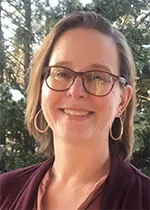
The Alchemist by Paulo Coelho (Especially the audiobook read by Jeremy Irons)
“This is a fantastic story of a young man as he seeks his “Legend” (life-quest, dream) and the people, experiences, and lessons he learns along the way. It is the kind of book you can pull from differently depending on what is happening in your own life journey. It’s an uplifting read to remind us to live in today and enjoy the journey.”
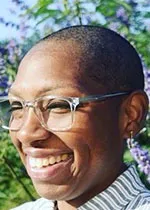
My Grandmother’s Hands: Racialized Trauma and the Pathway to Mending Our Hearts and Bodies by Resmaa Menakem [access the e-book from the public library]
“This book is just so thoughtful and comprehensive. I’ve learned so much about trauma, how it manifests, and how we can begin to heal.”
Planning to read: Big Friendship: How We Keep Each Other Close by Aminatou Sow and Ann Friedman [access the e-book from the public library]

Piranesi by Susanna Clarke
“This is a bizarre mystery and highly anticipated second novel from Clarke, who wrote Jonathan Strange & Mr. Norrell in 2004. It’s nothing like her debut, but it knocked my socks off; trust me and pick it up without reading anything about the plot or premise.”
Planning to read: Plain Bad Heroines by Emily M. Danforth
“This book has all the elements I tend to love in a novel — a story-within-a-story and queer gothic mystery at a haunted boarding school. I’m planning to read it on a beach vacation for maximum escapism.”
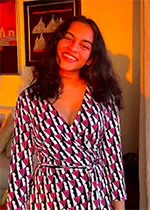
NVK by Temple Drake
“It’s an eerie supernatural gothic set in modern Shanghai, and it plays with setting, time, and atmosphere in a unique way. I found the characters and contrasting Eastern and Western perspectives compelling and think it’s an interesting read.”
Planning to read: Klara and the Sun by Kazuo Ishiguro [also available as an e-book]
“I’ve read a few chapters so far, and it’s characteristic of his classical take on science fiction.”
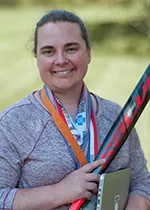
Bad Indians: A Tribal Memoir by Deborah Miranda
“A mosaic of poetry, archival papers, images, and personal history.”
Planning to read: Better Than Before: Mastering the Habits of Our Everyday Lives by Gretchen Rubin [request it from the public library]
“Because I’m an efficiency junkie.”

To All the Yellow Flowers by Raya Tuffaha
“She beautifully blends historic form and her identity into a poignant, refreshing collection of spoken-word poems that can send any reader on a roller coaster of emotions.”
Planning to read: The Tiger’s Wife by Téa Obreht [also available as an e-book]
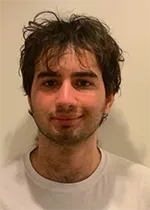
The Secret History by Donna Tartt
“One book I read this semester that I really enjoyed was Donna Tartt’s The Secret History, about a murder on a small liberal arts college campus.
Planning to read: Never Let Me Go by Kazuo Ishiguro [also available as an e-book]
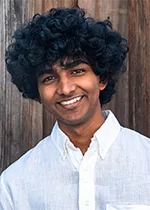
The Good and the Good Book by Samuel Fleischacker [also available as an e-book]
“The Good and the Good Book is a thought-provoking defense of revelatory religion in the modern world. Fleischacker employs a unique argument to defend the reasonableness of taking a particular text as an ethical guide, and fleshes out the implications of this while staying in touch with modern concerns. I read this book right after reading Dharmakīrti in my Buddhist Philosophy class, and it serves in my mind as a kind of counterbalance to Dharmakīrti’s poor opinion of scripture as a source of knowledge. Fleischacker’s interesting examples from his own Jewish faith also taught me new things I didn’t know about Judaism.”
Planning to read: The Non-Existence of the Real World by Jan Westerhoff [available as an e-book]
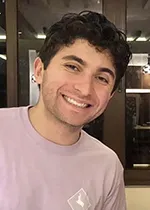
Lolita by Vladimir Nabokov
“It is ornately written, and uncomfortably and deftly places the reader into the mind of another.”
Planning to read: Klara and the Sun by Kazuo Ishiguro [also available as an e-book]

The Rise and Fall of D.O.D.O. by Neal Stephenson and Nicole Galland
“Time-travel, hard sci-fi, and the extinction of magic, all mixed with Stephenson’s existential satire. Funny, twisty, with a great story based on an intriguing premise at the center of this typically lengthy Stephenson book.”
Planning to read: The Dictionary of Lost Words by Pip Williams [access the e-book from the public library]

The Righteous Mind: Why Good People Are Divided By Politics and Religion by Jonathan Haidt
“The title itself probably makes evident why this is so relevant (and potentially helpful) in the current climate where ideological opponents seem to devalue each other’s morality and even humanity. This book helped me understand some of the foundations that give rise to conflict, partisanship, and polarization. In exploring these issues, Haidt draws on moral psychology, evolutionary biology, philosophy, cultural anthropology, and more.”

Binti by Nnedi Okorafor
“Nnedi Okorafor is the author of a series of novellas that I have read this year. The first in the series is Binti. It is the story of a young woman leaving her close-knit family and leaving the world she knows for a far-off university. It deals with identity and trauma, and is set in an amazingly vivid world. The whole series is very well done, and each is difficult to put down.”
Planning to read: Fugitive Telemetry by Martha Wells [access the e-book from the public library]
“Martha Wells is the author of The Murderbot Diaries, and I am looking forward to reading the most recent addition, No. 6 in the series, Fugitive Telemetry once it becomes available in my local library. The main character is a Security Robot that becomes self-aware and has to start dealing with free will, feelings, and humans not making any sense. It mostly wants to be left alone to watch its fictional dramas, the more unrealistic the better, but it also wants to know its past and choose its future.”
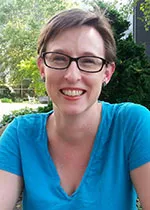
Lost in Thought: The Hidden Pleasures of an Intellectual Life by Zena Hitz [also available as an e-book]
“Hitz articulates and defends the value of the intellectual life outside of academia. She provides all sorts of stories about how people find intellectual pleasure in their everyday lives and helps dispel the myth that the love of learning belongs only to the educated or upper class.”
Planning to read: Think Least of Death: Spinoza on How to Live and How to Die by Steven Nadler [also available as an e-book]
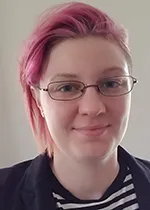
Here I Stand by Paul Robeson
“This is a relatively short autobiographical piece by the African American activist, leader, scholar, musician, and actor Paul Robeson written at a time when the government was actively repressing his ability to travel and speak with others about the international struggle for Black liberation.”
Planning to read: No Name in the Street by James Baldwin

Writings on Music, 1965–2000 by Steve Reich [also available as an e-book]
“The pioneering American composer discusses his work and compositional techniques. I found his thoughts on studying Ghanaian drumming, Balinese gamelan, and Hebrew cantillation to be especially enlightening.”
Planning to read: The Life and Afterlife of Harry Houdini by Joe Posnanski [request it from the public library]

Grammar for a Full Life: How the Ways We Shape a Sentence Can Limit or Enlarge Us by Lawrence Weinstein
“This book advocates for mindful grammar choices to embody how we want to be in the world and be in relationships. After reading this, I’m thinking about the active vs. passive voice in taking responsibility and how my semicolons provide accommodation to the reader. It is a fun perspective, especially for academics.”
Planning to read: Guesstimation 2.0: Solving Today's Problems on the Back of a Napkin by Lawrence Weinstein



